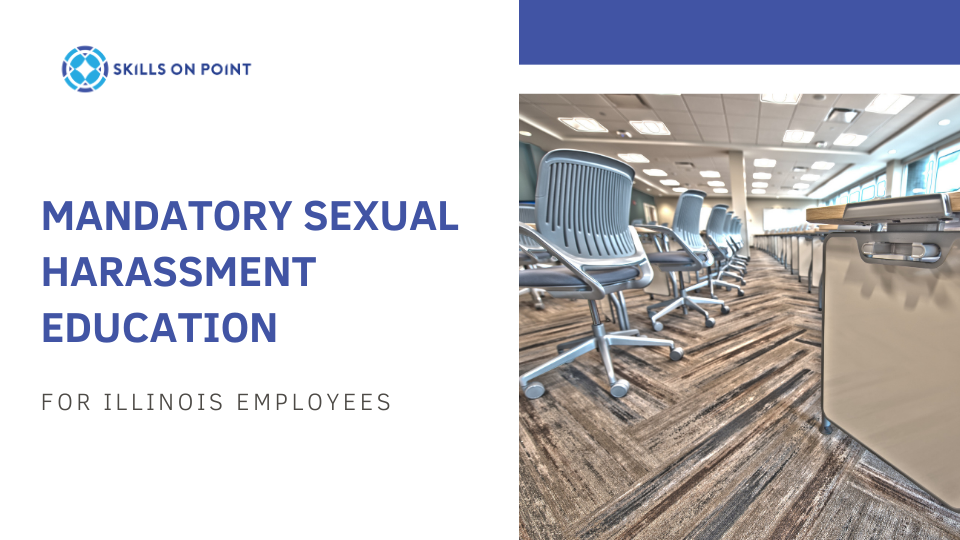Illinois law has changed to include mandatory sexual harassment training for all employees. Many employers do not have a plan for how to accomplish this, and there are plenty of very expensive options out there. Fortunately, we have you covered with a 100% compliant and far more cost-effective solution. Here’s what you need to know.

Sexual harassment education is now mandatory in Illinois
On August 9, 2019, Governor Pritzker ratified the unanimously approved State Bill 75 into Public Act 101-0221, a bill initially designed to help protect sexual harassment against Casino workers, but quickly expanded to include all employers and employees working in Illinois, coined the Workplace Transparency Act. This is meant to briefly unpack the key elements of the act and make readers aware of this new requirement before the first deadline for training January of 2021.
How does this affect you?
If you are an employer in Illinois, you are now required to offer annual sexual harassment education to all employees each year. As an employee, this should be provided for you, but in many small organizations, it may be “up to you” to figure out.
The first stated deadline for compliance is January 2021 and annually thereafter. Failing to comply comes with escalating fees commiserate to the size of your business and number of infractions. For businesses with four or fewer employees, the first-time noncompliance fee is $500, if larger than four employees, $1000. Second offenses increase to $3000, third offenses up to $5000. The clear message being sent is that it is better to be compliant and with this being an annual requirement, anticipate business to business solutions available to meet this requirement as discussed below.
What is required to be included in the training?
Training programs must include the following:
- Common examples of sexual harassment.
- Remedies available for victims of sexual harassment.
- Responsibilities of employers to prevent, investigate, and correct sexual harassment.
The duration of training should be at minimum an hour of time, as is being required by certain industries such as healthcare licensure renewal. Certification of training must be kept on file in the event the employer is asked to produce proof of completion.
How does this help victims of harassment?
Within this 195-page bill are many documented statistics to the detrimental effects of workplace harassment, gender violence, and stalking. The effects of sexual harassment in particular represent a massive human rights outcry and as with most under-protected and under-reported populations, the responsibility of reporting comes at a personal and professional cost, with lost days, missed work, and lost productivity, not to mention the threat of recourse and a hostile work environment from the offender.
The law provides key protections to victims, including confidentiality, the right to take time off to deal with your harassment claim (up to 12 working weeks), the right to not lose your job due to this, and the right to not be discriminated in current and future employment due to the claim. This helps people who are in bad situations control their own fate without the risk of losing their job while filing orders of protection, undergoing therapy, training, and the like.
Solutions for training
There is far more in this bill than can be covered in this blog. If your organization is in need of training to meet the specific requirements of this law, please consider our online product, Mandatory Sexual Harassment Education for Illinois Employees, and is offered at a discounted corporate rate and includes all regulatory recordkeeping for your convenience.



